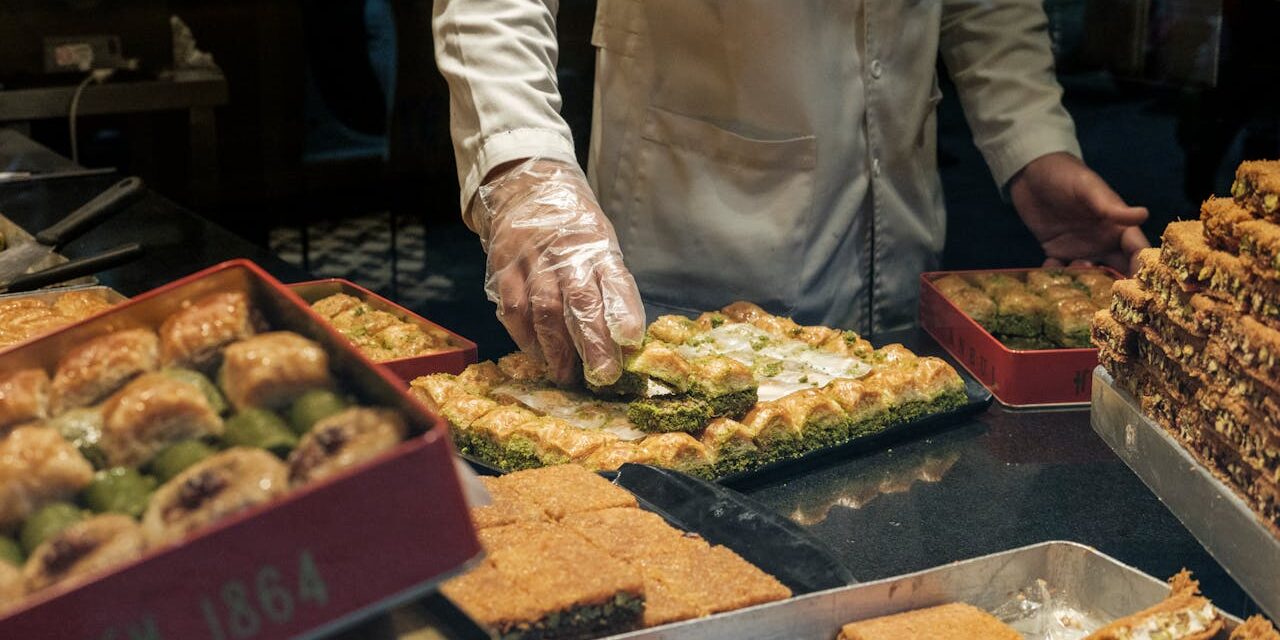The delicate crunch of golden phyllo pastry gives way to a sweet symphony of honey, nuts, and spices. Each bite whispers stories of ancient empires and bustling bazaars.
Baklava, Turkiye’s iconic dessert, has garnered international acclaim as a beloved treat, tying together the nation’s layered culinary heritage—a perfect way to celebrate Turkiye’s national day.
Its delicate, flaky texture and balanced sweetness has filled the mouths and bellies of people around the world – becoming the country’s own sweet ambassador of Turkish history and culture.
Borderless origins
Baklava’s origins are often traced to the Ottoman Empire, but its roots extend even further, influenced by culinary traditions across the Mediterranean, Middle East, and Central Asia. While the most recognized versions come from Turkiye, similar desserts can be found in numerous cultures, each with its own unique spin.
As with many recipes, there are variations across geographies to which people will lay claim to the nutty treat.
For instance, Greek baklava could be likened to a sister of the Turkish variation, with slight differences in ingredients. Meanwhile, in Lebanon, knafeh incorporates a semolina dough with cheese and syrup, showcasing a different texture and taste profile—more akin to a distant cousin from another city.
Other countries, such as Iran and Egypt, also have their own interpretations of layered pastries with nuts and sweet syrups.
All in all, baklava can be seen as one part of a bigger family where traditions have been passed down through generations. It has come to embody the rich, shared histories of people across the Mediterranean, Middle East, and Central Asia.
Baklava’s role as a cultural bridge
Across the globe, baklava has become a familiar dessert that sparks curiosity about Turkish culture.
Baklava, a staple in any Turkish restaurant, is a must-have that draws diners in at its mere mention on the menu. For the seasoned foodie, adding baklava to the tab after a meze platter or doner delivery feels like second nature.
But beyond its appeal as a delicious dessert, baklava serves as a culinary bridge between Turkiye and the world. Its very history is a testament to the food’s ability to jump across borders and into the mouths of those willing to taste something beyond the familiar, but a bite that is still warm and inviting.
Through baklava, Turkiye offers a taste of its own complex, layered heritage. The dessert not only tells part of the story of a wider region, where the malleability of borders has been chewed by time, but also stands as a bastion of Turkiye’s own national culinary culture.
*Diplomatic Network (Asia) wishes all of Turkiye and its diaspora a happy national day.







